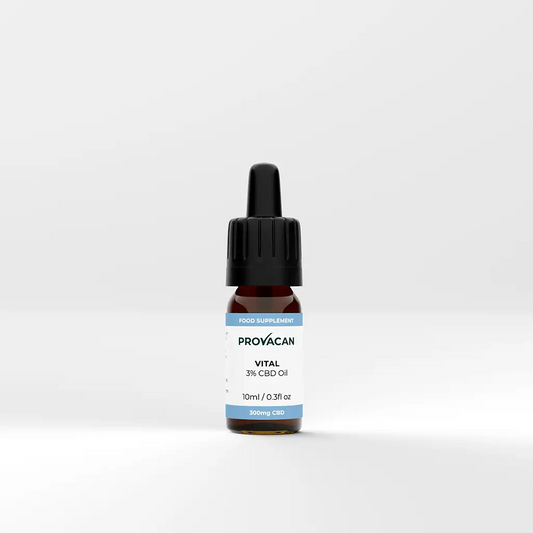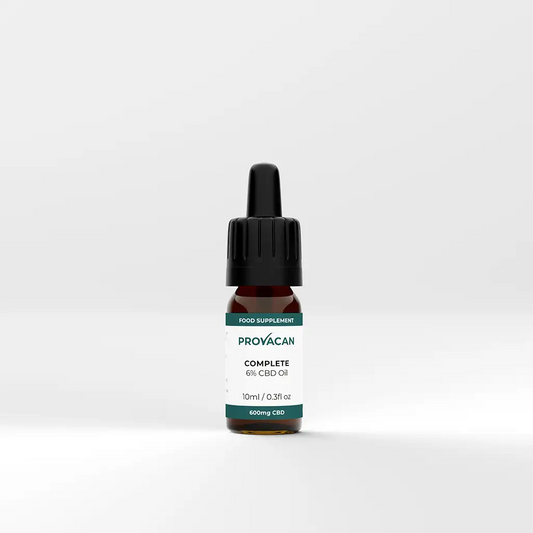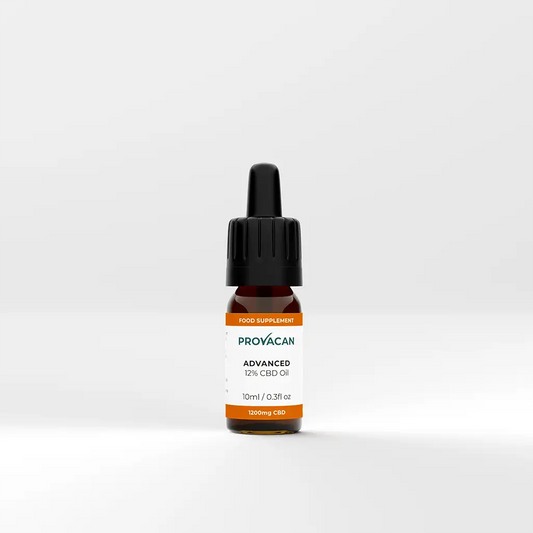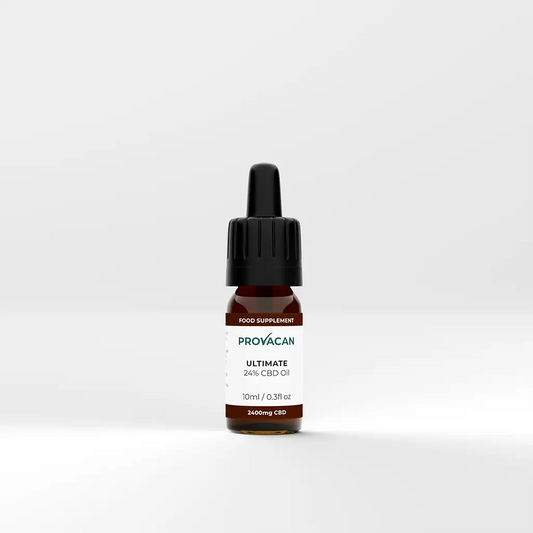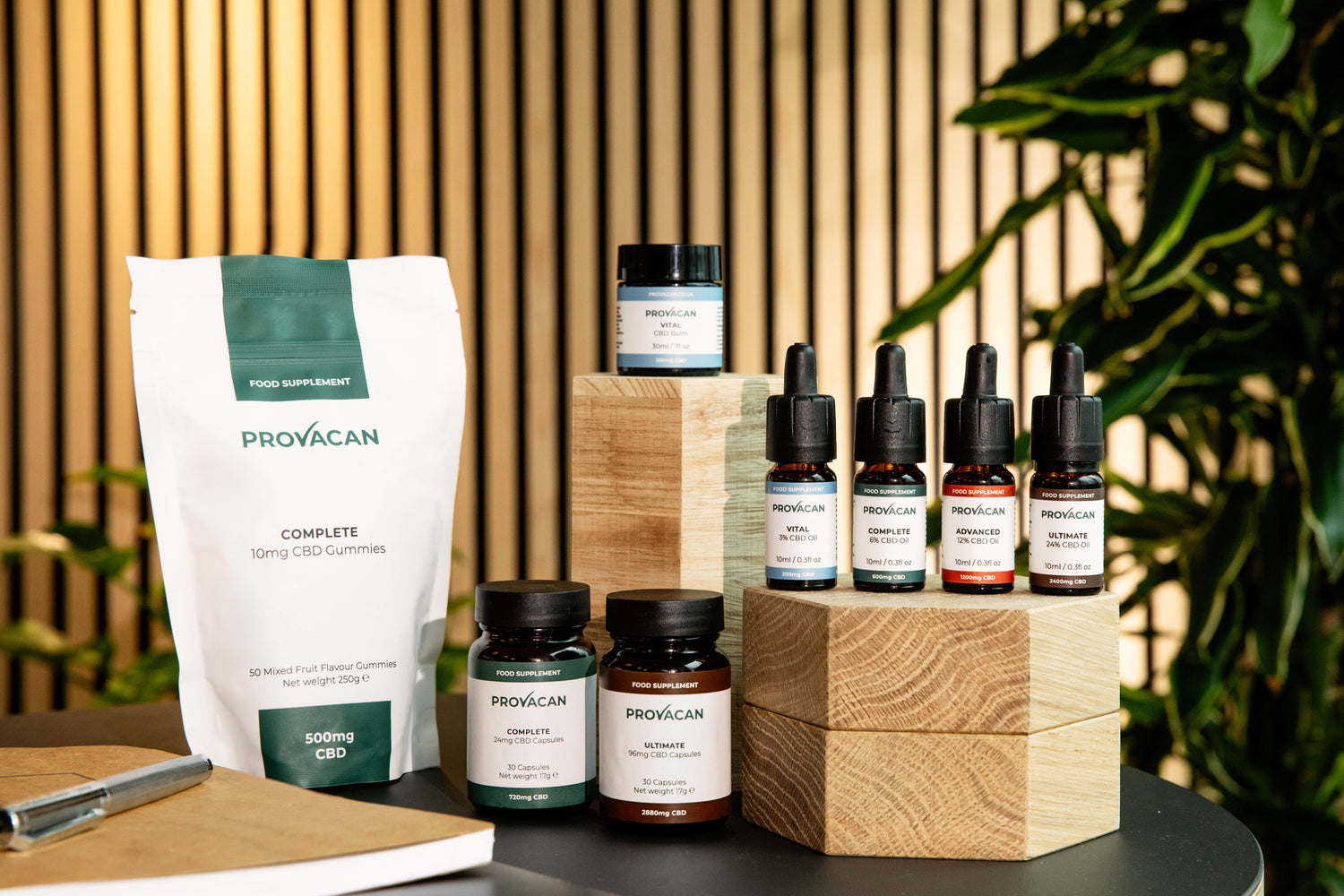CBD oil, like many natural products, does indeed have a finite shelf life. If you're wondering, 'Does CBD oil go bad?' or 'Does CBD oil expire?', the clear answer is yes. All CBD oil products must display an expiration date on their packaging, which is crucial for maintaining their quality, efficacy, and safety.
Generally, a bottle of CBD oil can last between one to two years. However, the quality of ingredients used, the manufacturing process, and how you store the oil can vary this. To ensure your CBD oil retains its effectiveness over time, it's important to store it correctly and watch for any signs that it may have expired.
Signs Your CBD Oil Has Expired
Identifying whether your CBD oil has expired is vital in making the most of its benefits. There are several key signs to look out for that indicate your CBD oil may no longer be at its best. These signs are usually noticeable through sensory changes such as smell, taste, colour, and consistency. Let’s explore these indicators in detail.
Smell
A significant change in the smell of CBD oil can be a tell-tale sign of expiration. Fresh CBD oil typically has a mild, earthy aroma. If your oil begins to emit a rancid or unusually strong odour, it could suggest that it has gone bad. Paying attention to any noticeable changes in scent is a simple way to assess your oil's condition.
Taste
The taste of CBD oil can also indicate its freshness. While CBD oil naturally has a distinct, somewhat earthy or grassy flavour, any sharp or unpleasant taste changes might suggest it is not at its best. If the oil tastes significantly different from when you first opened it, it may have passed its best-before date.
Colour
CBD oil can undergo a change in colour due to exposure to air and light over time. This transformation often sees the oil shift from its original shade to a darker, more opaque tone, potentially indicating that the oil may not be at its optimal quality.
Monitoring any significant changes in the colour of the CBD oil is a practical approach to assess its freshness. For optimal preservation, it's advisable to store CBD oil in a cool, dark environment, shielded from direct sunlight. It's a natural process for some CBD products to experience colour alterations when exposed to UV light, a testament to their interaction with natural elements.
Consistency
The consistency of CBD oil should be relatively stable. If it becomes overly thick, cloudy, or starts to separate, this could be a sign that the oil is expiring. Consistency changes can affect the ease of use and potentially the effectiveness of the oil.
What Affects The Shelf Life Of CBD Oil
Several factors, ranging from the quality and ingredients used to the manner of storage, can influence the shelf life of CBD oil. Understanding the relative influence of these factors can help you maximise the longevity of your CBD oil.
Ingredients
The other ingredients added with CBD oil, including additives, preservatives, and the carrier oil, greatly influence its shelf life. The presence and nature of preservatives are crucial; natural preservatives, for instance, are often added to prolong the freshness and efficacy of the oil.
These preservatives help in maintaining the integrity of the oil against degradation caused by exposure to environmental factors. On the other hand, the absence of preservatives might shorten the shelf life, but could appeal to those seeking a more organic product.
Furthermore, the choice of carrier oil is another essential aspect that determines the longevity of CBD oil. Carrier oils serve as the base in which CBD is diluted and they vary in terms of their own shelf lives and stability.
Commonly used carrier oils in CBD products include hemp seed oil, MCT oil (derived from coconut), and olive oil, each with its distinct characteristics. For example, MCT oil is known for its long shelf life and stability, which can in turn extend the shelf life of the CBD oil. In contrast, certain other carrier oils may have shorter lifespans, thereby potentially reducing the overall shelf life of the CBD product.
Understanding the interaction between these ingredients and their impact on the product's durability is key for both manufacturers and consumers to ensure optimal use and storage of CBD oil.
Quality
The longevity and efficacy of CBD oil are directly influenced by its overall quality, which is a function of the purity of its ingredients and the extent of additives used.
High-quality CBD oils are typically characterised by a higher concentration of pure CBD extract and minimal use of additives. This composition not only ensures a more potent product but also contributes to a longer shelf life. The purity of the CBD extract plays a crucial role; the more refined the extract, the less susceptible it is to degradation over time.
Additionally, the quality of the extraction process itself, whether it employs CO2 extraction methods or other techniques, directly affects the stability and shelf life of the oil. Premium CBD oils often undergo rigorous testing and quality control measures to guarantee consistency and longevity.
On the other hand, lower quality CBD oils may exhibit a faster rate of degradation, which can be attributed to less stable formulations and the presence of lower-grade ingredients. These products might contain impurities or a higher proportion of additives and preservatives that can compromise the oil’s stability.
Furthermore, the source of the hemp, extraction methods used, and the manufacturing process are all factors that can impact the quality of the oil. Inexpensive, mass-produced oils often skip the essential steps needed to preserve the integrity of the CBD, resulting in a product that not only has a shorter shelf life but may also be less effective.
It is important therefore to consider these quality indicators when selecting CBD oil, as they directly correlate with the product’s performance and durability.
Storage
Storage conditions greatly affect the longevity of CBD oil. Keeping the oil in a cool, dark place away from direct sunlight and heat can preserve its quality. Proper storage ensures that the oil maintains its potency and efficacy for as long as possible.
Type Of CBD Oil
The shelf life of CBD oil is significantly affected by the specific type of CBD used: full spectrum, broad spectrum, or isolate.
Full spectrum CBD oil, detailed in our article 'What is Full Spectrum CBD', contains a complete range of cannabinoids, terpenes, and other compounds present in the hemp plant. This type of oil is believed to benefit from the 'entourage effect', where the combined action of cannabinoids and terpenes enhances the overall efficacy of the oil.
However, the complex composition of full spectrum CBD oil means it may be more susceptible to changes over time, as the various natural compounds interact with each other and external elements like light and air. This interaction can potentially influence the stability and shelf life of the product.
In contrast, broad spectrum CBD oil and CBD isolate represent more refined forms, with broad spectrum oil containing multiple cannabinoids but typically without THC, and isolate being the purest form, consisting solely of CBD. The refining process for these types removes certain elements, which can lead to a more stable product with a potentially longer shelf life.
Broad spectrum oil, while still offering a range of cannabinoids, lacks the full profile of hemp plant compounds, possibly making it less prone to degradation than full spectrum oil.
CBD isolate, being the most refined with only pure CBD, may offer the longest shelf life as it is less likely to react with environmental factors due to its singular compound structure.
Therefore, the type of CBD oil chosen not only influences the therapeutic effects but also plays a crucial role in determining how long the product can be stored effectively.
Buy CBD Oil
To ensure you receive the highest quality and freshest CBD oil, buy CBD oil from reputable sources like Provacan.
Our range of CBD oils is carefully crafted to deliver both quality and efficacy, backed by thorough research and development.
Following these storage tips and being mindful of expiration signs can greatly assist in maintaining the integrity and effectiveness of your CBD oil.
For more information on CBD oil and its uses, check out our articles on 'What is CBD Oil', 'How to Take CBD Oil', 'What does CBD Oil Do', and 'Different Types of CBD Products Explained'.


